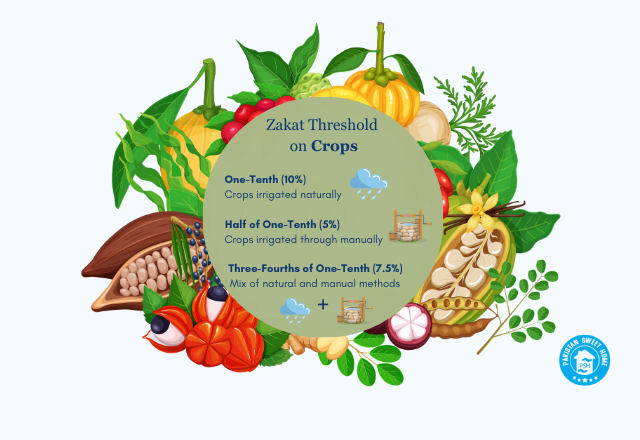
- DONATE
- SPONSOR A CHILD
- Zakat calculator
- SIGN IN
-
- About Us
- FAQ's
- Contact
- Get Involved
- Admissions
- Sign In
- SPONSOR A CHILD ZAKAT CALCULATOR DONATE
-
info@pakistansweethome.org.pk
(051) 4865856
+92 335 1118477
Ever wonder if your Ramadan worship had imperfections that need purification before Eid's celebration?
Even if you tried your best, moments of forgetfulness or missed opportunities could affect your fast. As Eid approaches, those little gaps might make you feel like your Ramadan isn’t fully complete.
Zakat al Fitr is the key to cleansing those flaws.
Let’s understand the role of Zakat al Fitr in perfecting your Ramadan.
Zakat al-Fitr, also known as fitrana in Islam. The term Zakat al Fitr comes from an Arabic phrase where zakah means ‘to purify’ and fitrah means 'nature,'.
The word 'zakah' is connected to 'fitr' because it emphasizes the obligation of charity. The term "fitrah" comes from the Arabic word "fitr," meaning "nature," symbolizing the act of breaking the fast and eating after abstaining from food.
Therefore, Zakat al-Fitr's meaning is "purifying charity of breaking the fast". It is also called Sadaqat al-Fitr, or Zakat al-Fitrah, the "Alms of Human Nature."
This mandatory charity is required from every Muslim regardless of age or gender at the end of Ramadan.
Ibn Abbas (may Allah be pleased with him) narrated:
"The Messenger of Allah (peace and blessings be upon him) prescribed Zakat ul Fitr [Fitrana] to cleanse the fasting individual from any improper speech or actions and to provide sustenance for the needy. It is considered Zakat if given before the Eid prayer, but becomes ordinary Sadaqah if given after the prayer."
[Abu Dawud and Ibn Majah]
The Prophet Muhammad (PBUH) specified Zakat ul Fitr as one saa’ ( صاع ) of staple food.
According to his directive, each fasting individual should give out Zakat al-Fitr, equivalent to one saa’ ( صاع ) of staple food per person under their care. Zakat al-Fitr measurement is not based on weight but on volume, approximating the size of a large salad bowl.
A saa’ comprises four mudds, with each mudd resembling a smaller container, akin to a small salad bowl. To be exact, a Prophetic mudd corresponds to approximately 0.75 liters (or 750 mL). This implies that a saa’ equals three liters in modern volume measurements.
Formula:
To calculate Zakat al-Fitr amount for any number of family members:
Zakat al-Fitr = 4 × (Cost of one main food item) |
Example:
Imagine a family of four members: the head of the household, their spouse, and two children.
The cost of one main food item (such as rice) is $2 per kilogram.
Calculation:
Zakat al-Fitr is equal to four times the cost of one main food item.
In our example, the cost of one kilogram of rice is $2.
Therefore, Zakat al-Fitr for each member of the household would be:
$2 × 4 = $8 per person |
Zakat al-Fitr should be given before the Eid prayer, as instructed by the Prophet Muhammad (peace be upon him).
There are two recommended times for its giving:
Example: Newborn Timing and Zakat al-Fitr Obligation
This division highlights the nuance in scholarly interpretations regarding the exact timing for Zakat al-Fitr.
Sadaqat al-Fitr is an obligatory duty (Wajib) for every Muslim, regardless of gender or age, as long as they are capable of fulfilling it.
According to Islamic tradition, Prophet Muhammad (PBUH) mandated Zakat al-Fitr for all members of the Muslim community. This community includes slaves, free individuals, men, women, and people of all ages.
During the Prophet's lifetime, Abu Sa'eed al-Khudree recounted that they would give on behalf of everyone in their household. This included the young and old, free individuals and slaves, providing a specific measure of grain, cheese, or raisins.
Here are the recipients of Zakat al-Fitr:
Zakat al-Fitr is given as food that is consumed by humans, typically the staple food of the region.
Here’s a breakdown of what can be given:
“This approach aligns with the principles of sharee’ah, as it ensures Zakat al-Fitr is relevant and practical to the community receiving it.”
– Ibn al-Qayyim
Distributing Zakat al-Fitr requires care to ensure it reaches those who are entitled to it.
Below are key points for proper distribution:
The most rewarding method is to personally deliver Zakat al-Fitr to those in need, ensuring it fulfills its purpose and is distributed fairly.
Here are the profound Hadiths on Zakat al-Fitr, illustrating the hidden wisdom and immense importance of this obligatory charity in Islam:
Ibn Abbas (May Allah be pleased with him) said:
“The Messenger of Allah (peace and blessings of Allah be upon him) made Zakat al-Fitr obligatory to purify the fasting person from idle talk and foul language, while also providing for the poor. If paid before the prayer, it is considered an accepted zakah; if paid after, it is regarded as regular charity (Sadaqah).”
(Reported by Abu Dawood, 1371. Al-Nawawi said: Abu Dawood reported it from Ibn 'Abbas with a hasan isnaad)
‘Foul language’ refers to obscene speech. ‘Feeding [the poor]’ refers to edible food. ‘Whoever pays it before the prayer’ means before Salat al-‘Eid.
‘It is an accepted zakah’ – here zakah means Sadaqat al-fitr. ‘Just a kind of charity’ means a kind of charity that could be given at any time.
(‘Awn al-Ma’bood Sharh Abi Dawood)
It was mentioned that this interpretation aligns with the verse in Surah Al-A'la (interpretation of the meaning):
“But those who purify themselves, honor the name of their Lord, and engage in heartfelt prayer will succeed.”
[al-A’laa 87:14-15]
Umar ibn ‘Abd al-‘Azeez (May Allah be pleased with him) and Abu’l-‘Aaliyah (May Allah be pleased with him) said:
“He [the Prophet (peace and blessings of Allah be upon him)] paid Zakat al-Fitr then he went out for the prayer – i.e., Prayer of Eid al-Fitr.”
(Ahkaam al-Quran, part 3, Surah al-A’laa)
Wakee’ ibn al-Jarrah said:
“Zakat al-Fitr for the month of Ramadan is like two sajdahs of sahw for the prayer. It makes up for any shortcomings in the fast as the prostrations make up for any shortcomings in the prayer.”
(Al-Nawawi, al-Majmoo’, part 6)
Here are the rules of Zakat al-Fitr:
Zakat al-Fitr is not required for an unborn child, but it is recommended following the example of Uthman ibn Affan (may Allah be pleased with him).
Both Zakat al-Mal and Zakat al-Fitr share a similar objective, yet they have notable distinctions.
Zakat al-mal constitutes an Islamic levy on wealth, while Zakat al-fitr represents a contribution made by the head of the household for the entire family.
Now, let's explore further disparities between the two:
Characteristic | Zakat al-Mal | Zakat al-Fitr |
Meaning | Wealth purification | Breaking the fast purification |
Purpose | Mandatory charity for accumulated wealth | Mandatory charity at the end of Ramadan |
Payment | 2.5% of wealth annually | 2.5kg of food or its equivalent yearly |
Eligibility | Muslims meeting Nisab threshold | Every Muslim with a food surplus after Ramadan |
Recipients | Poor, needy, debtors, as per Qur’an | Poor, needy, typically distributed locally |
Timing | Any time during the year | Before Eid al-Fitr, during Ramadan |
All in all, Zakat al-Fitr is a mandatory charity given at the end of Ramadan to purify the fasting person and help those in need. It must be distributed before the Eid prayer and is typically equivalent to 3 kg of staple food. It should be given to eligible recipients, such as the poor and needy, ensuring the blessings of Ramadan are shared with others.
Zakat al-Fitr’s timely payment before Eid prayer ensures that those in need can partake in the joyous occasion. The distinction between Zakat al-Mal and Zakat al-Fitr underscores the unique purposes of each in Islamic practice.
Yes, zakat al-Fitr is obligatory upon every Muslim who possesses the means to pay it.
Zakat al-Fitr should be paid before the Eid prayer on the day of Eid al-Fitr. It can be paid during Ramadan and also before Ramadan, but it should not be delayed until after the Eid prayer.
Yes, zakat al-Fitr can be given in cash or in the form of staple food items.
As per the announcement, the set minimum for Zakat al-Fitr 2025 is Rs 360 per individual. This sum is roughly equal to the value of two kilograms of wheat flour.
Sadaqat ul Fitr and Zakat al-Fitr are different terms used interchangeably to refer to the same obligatory charity given before Eid al-Fitr.
Zakat al-Fitr can be given in either food or money. Traditionally, it is given in the form of staple foods, such as wheat, dates, or barley, that are common in the region. However, in many cases, it is also accepted in monetary form, especially if it is easier to distribute to those in need.

WRITTEN BY
Ali Raza (Islamic Theology, Zakat and Sadaqah Regulations)
Ali Raza holds a Master of Arts in Islamic Studies and is an expert in Islamic theology and jurisprudence. Specializing in Zakat, Sadaqah, and other Islamic donations, Ali's writings provide valuable insights into the religious and ethical aspects of charity. His work for Pakistan Sweet Homes aims to educate and inspire readers to support orphan care and charitable initiatives, making him a key contributor to the organization's mission.
Ali Raza holds a Master of Arts in Islamic Studies and is an expert in Islamic theology and jurisprudence. Specializing in Zakat, Sadaqah, and other Islamic donations, Ali's writings provide valuable insights into the religious and ethical aspects of charity. His work for Pakistan Sweet Homes aims to educate and inspire readers to support orphan care and charitable initiatives, making him a key contributor to the organization's mission.
Hadith About Zakat: A Prophetic Guide on Obligatory Charity
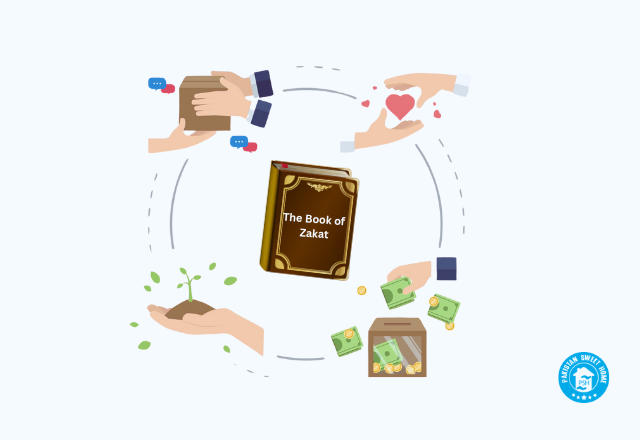
How to Calculate Zakat on Cash?
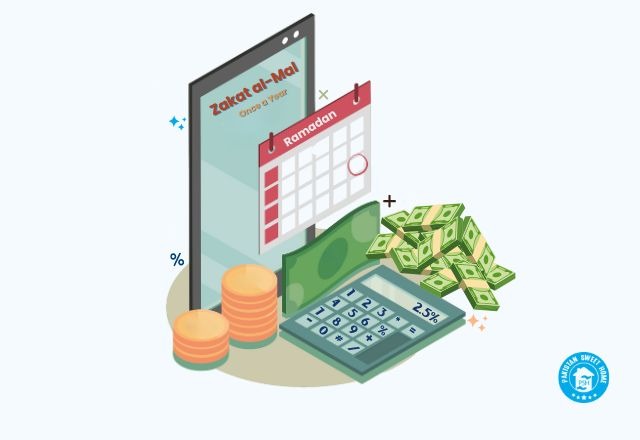
How to Calculate Zakat on Gold?
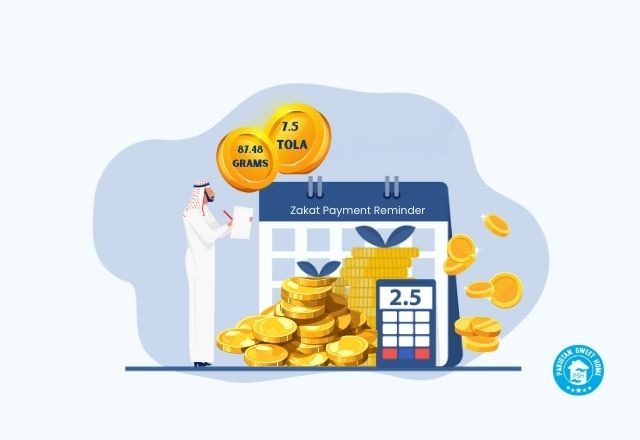
How to Calculate Zakat on Property?

Zakat on Salary: Calculations, Formula, Examples, Scenarios

10 Key Reasons Why Zakat is Important in Islam
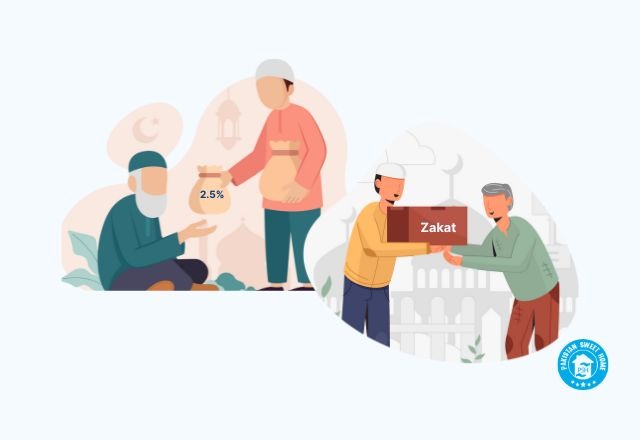
The Benefits of Zakat in Islam
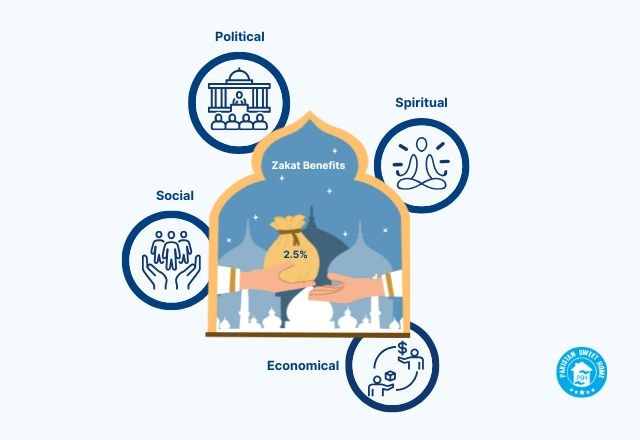
The Eight Recipients of Zakat (Masarif-e-Zakat)
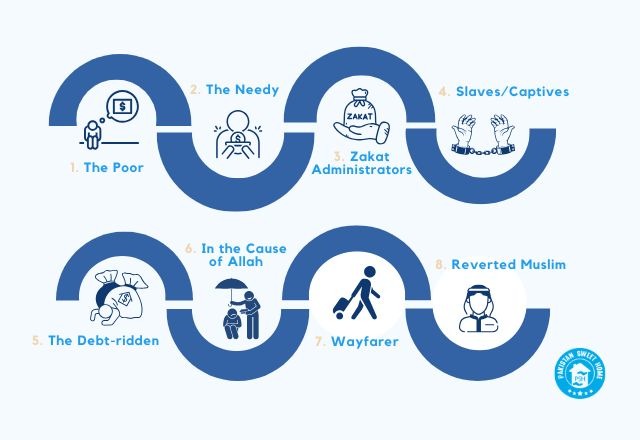
What is the Difference Between Zakat and Sadaqah in Islam?

What is the Nisab of Zakat in Islam?
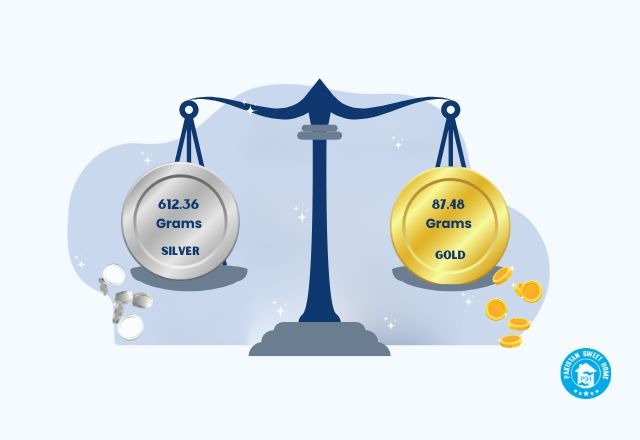
Zakat on Livestock: Camels, Cattle, Goats & Sheep
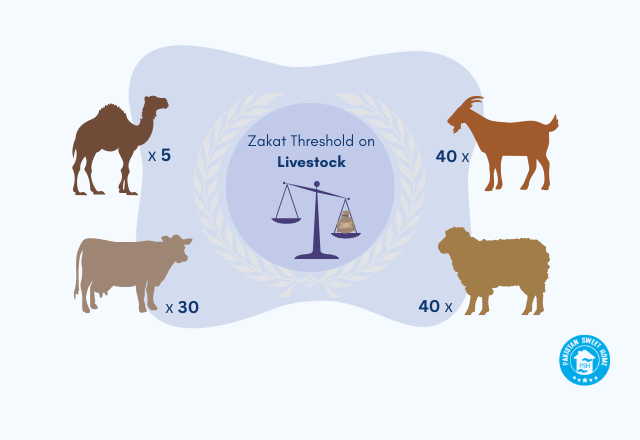
Understanding Zakat on Agricultural Produce: Fruits and Grains
